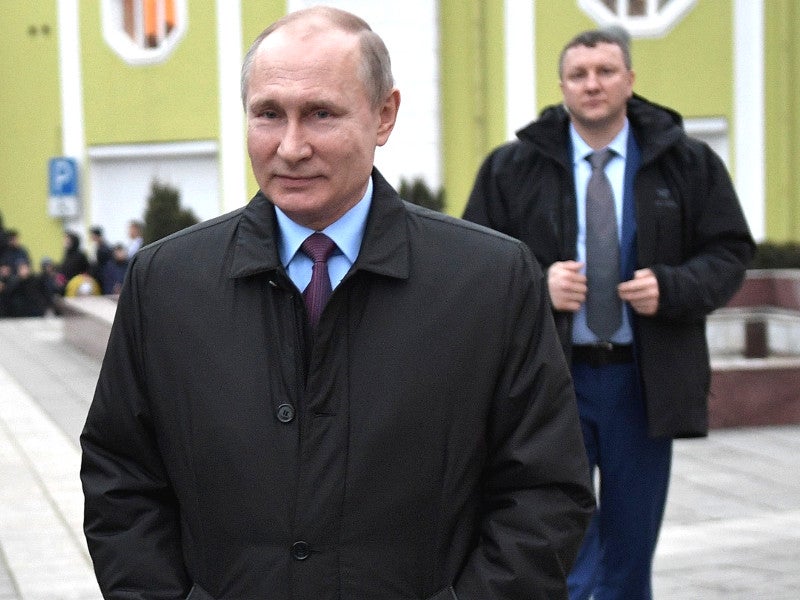President Donald Trump has fired his Secretary of State Rex Tillerson just as an attempt on the life a former Russian intelligence officer living in the United Kingdom, coupled with the suggestion that the U.S. military might launch new strikes against Syrian dictator
Bashar Al Assad, have dramatically escalated tensions between the Kremlin and the United States and its allies. Russia has denied any involvement in the assassination plot, which reportedly involved a chemical agent, and has advanced a new conspiracy theory about the source of separate chemical weapon attacks in Syria, threatening to respond in kind if its partners in that country come under attack.
This latest downturn in the Russian government’s relations with the United States and other Western countries began with the poisoning of Sergei Skripal and his daughter Yulia in the British city of Salisbury on March 4, 2018. Authorities in the United Kingdom subsequently said that they had a high level of confidence that the Kremlin, or third parties acting directly on its behalf, were responsible for the attempted murders. More than 20 other individuals suffered ill effects, as well, in what the U.K. government has called a "brazen and reckless" attack and military chemical weapons defense teams had to help secure and decontaminate various sites. At the time of writing, both Skripals remain in critical condition.
Spy games in the United Kingdom
“Either this was a direct act by the Russian State against our country,” U.K. Prime Minister Theresa May told members of the country’s parliament in a public address on March 12, 2018. “Or the Russian government lost control of this potentially catastrophically damaging nerve agent and allowed it to get into the hands of others.”
Skripal, who had previously been a member of the Russian military’s Main Intelligence Directorate, or GRU, went to prison in 2006 on charges of espionage. The U.K. government requested he be included in a 2010 multi-national spy swap in exchange for a group of Russian agents that the United States had arrested, seeming to confirm his conviction for working as a double agent for Britain’s Secret Intelligence Service, or MI6.
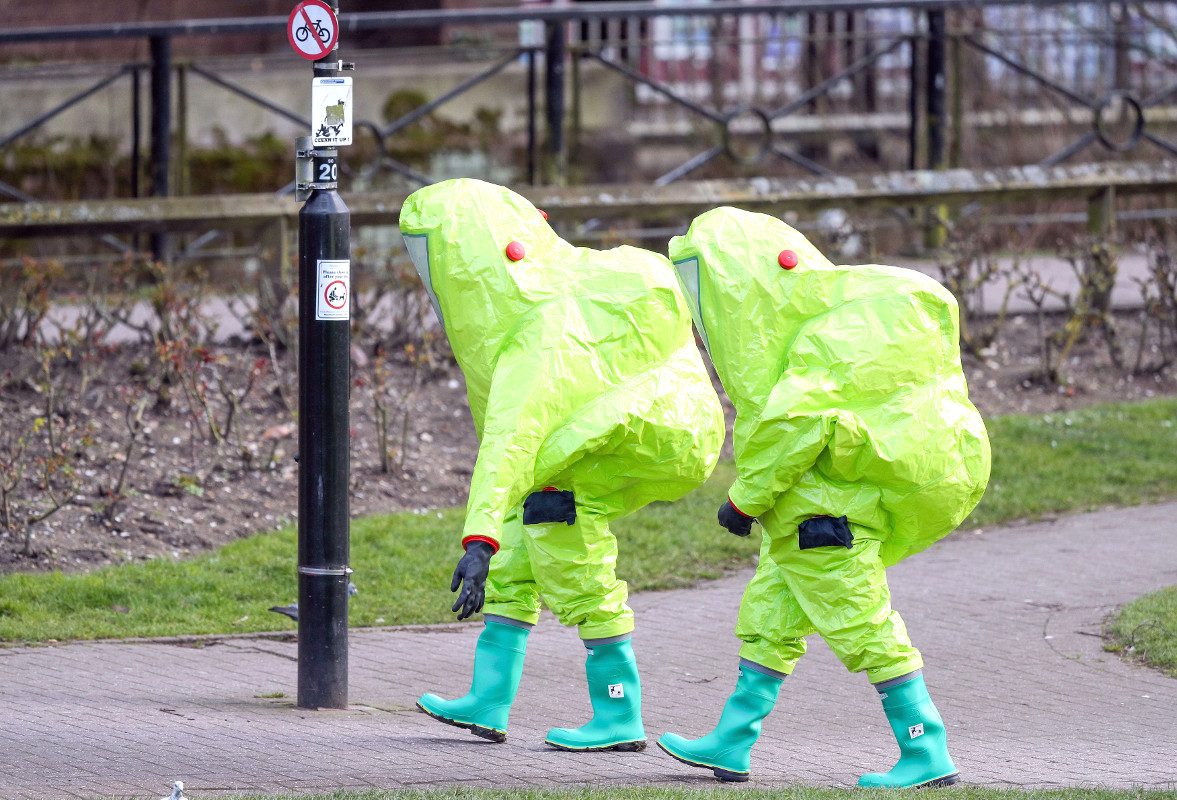
At the center of May’s accusation appears to be the U.K. government’s determination that Skripal and his daughter, who had been visiting him from Moscow at the time, had been the victims of an attack using one of a group of chemical agents known collectively as Novichok. This Russian name translates broadly to “newcomer” in English.
First developed under the Soviet Union, these are organophosphate nerve agents that operate in the same basic way as better known chemical weapons such as Sarin or VX. The compounds inhibit normal muscle function, preventing the body’s nervous system from talking properly to other organs, causing victims to suffocate to death or suffer cardiac arrest because they can’t control their breathing or their heart rate.
The Novichok family is reportedly significantly more lethal, but safer to handle, especially when in a binary form where two distinct compounds have to mix first to create the lethal substance. Soviet scientists began work on the agents in the 1970s specifically to defeat NATO protective gear and detection equipment.
However, that work then apparently continued right up until the collapse of the Soviet Union in 1991, and possibly after, with the additional goal of circumventing the Chemical Weapons Convention by using precursor chemicals that that agreement does not regulate or monitor. The treaty, to which Russia is party, entered force in 1997, but was the product of decades of prior arms control negotiations.
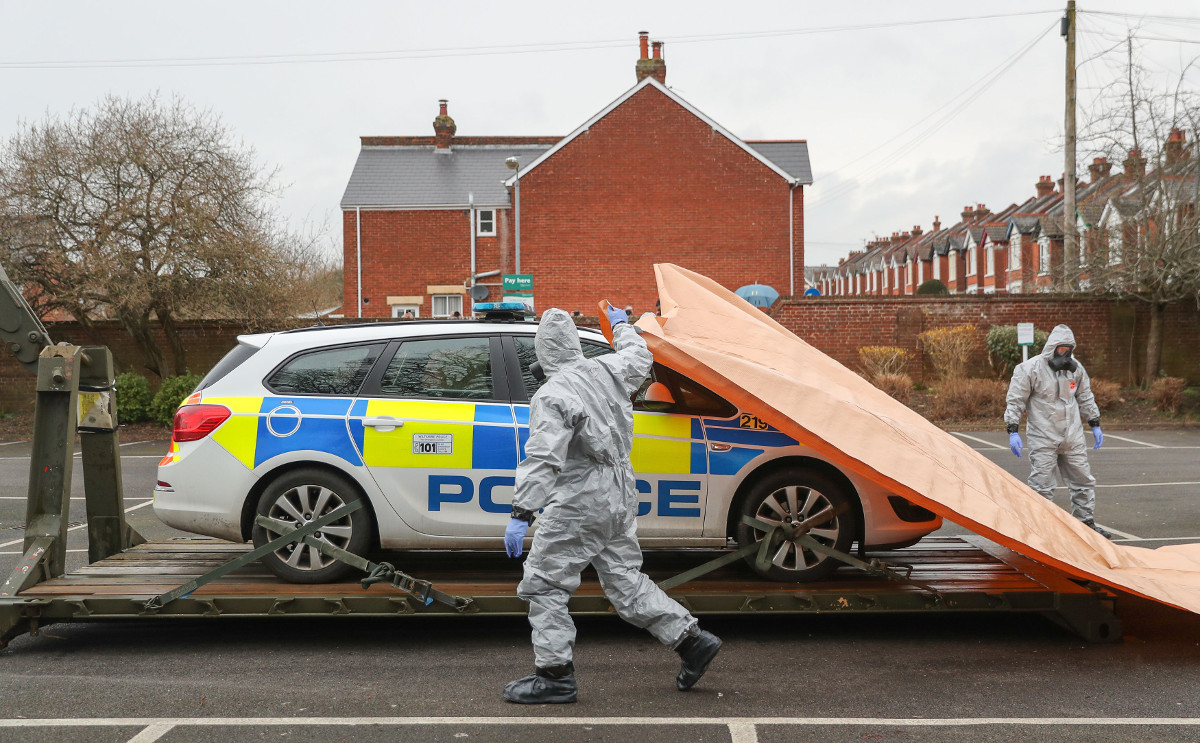
Prime Minister May also cited Russia’s history of state-sponsored assassinations, particularly against former intelligence agents, as further linking the Kremlin to the incident. Notably, in 2006, former Russian intelligence officer Alexander Litvinenko died in London after receiving a lethal dose of the radioactive isotope polonium-210. The United Kingdom holds Russia responsible for that assassination, as well, and experts and observers widely believe Russian President Vladimir Putin has ordered the deaths of a number of other defectors, political opponents, and media critics at home and abroad.
The U.K. government has demanded an official response from Russian authorities on the matter by the end of March 13, 2018. If not, May said she would call for unspecified “extensive measures” against the Kremlin, which could reportedly include new sanctions, revoking broadcasting licenses for certain Russian media outlets, or even cyber attacks against the Russian government. “Should there be no credible response, we will conclude that this action amounts to an unlawful use of force by the Russian State against the United Kingdom,” she added.
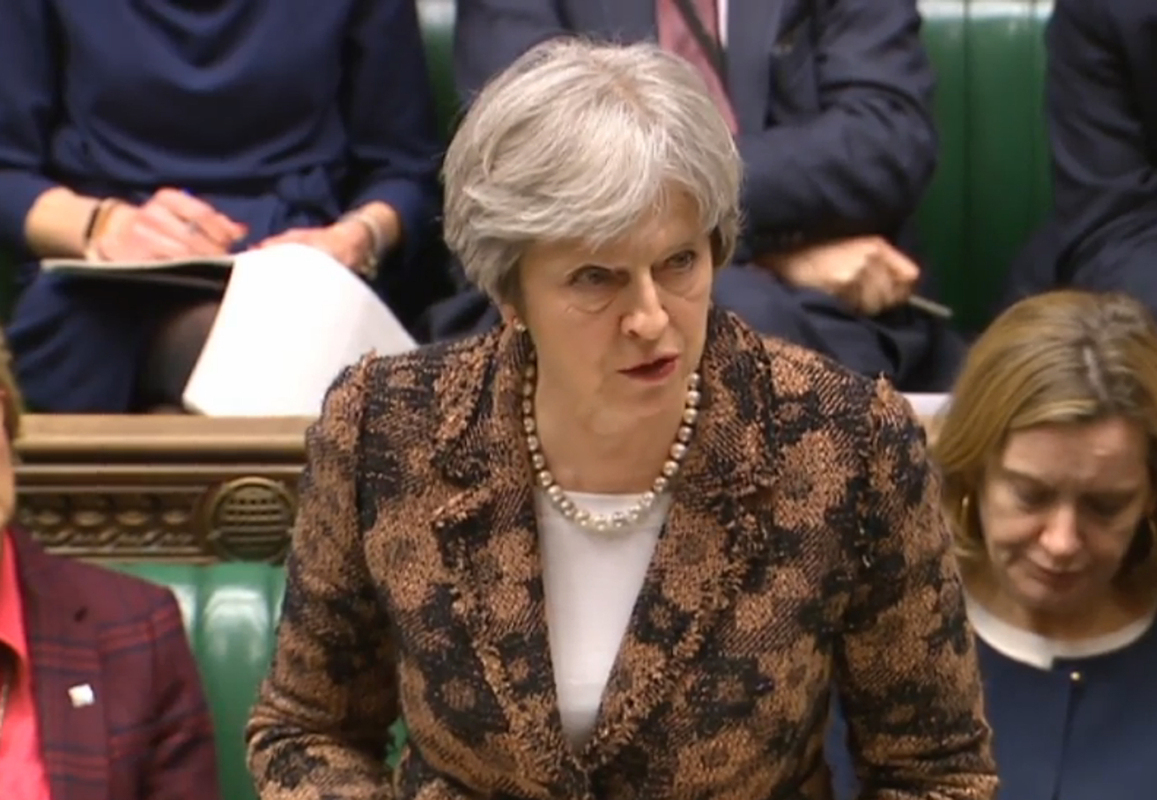
Escalating tensions over Syria
This was an especially strong ultimatum given that the United Kingdom is a member of NATO, which includes a collective security clause that could compel other members to also engage in any response. It also came on the same day that U.S. Ambassador to the United Nations Nikki Haley threatened future American military action in response to Syrian government chemical weapon attacks and again questioned whether the Russians were incapable of influencing Assad and his regime or complicit in its atrocities.
“Today, we must ask whether Russia can no longer influence the Assad regime to stop the horrific destruction of hospitals, medical clinics, and ambulances. To stop dropping chemical weapons on villages,” Haley said in her remarks to the U.N. Security Council on March 12, 2018. “We also warn any nation that is determined to impose its will through chemical attacks and inhuman suffering, most especially the outlaw Syrian regime: the United States remains prepared to act if we must.”
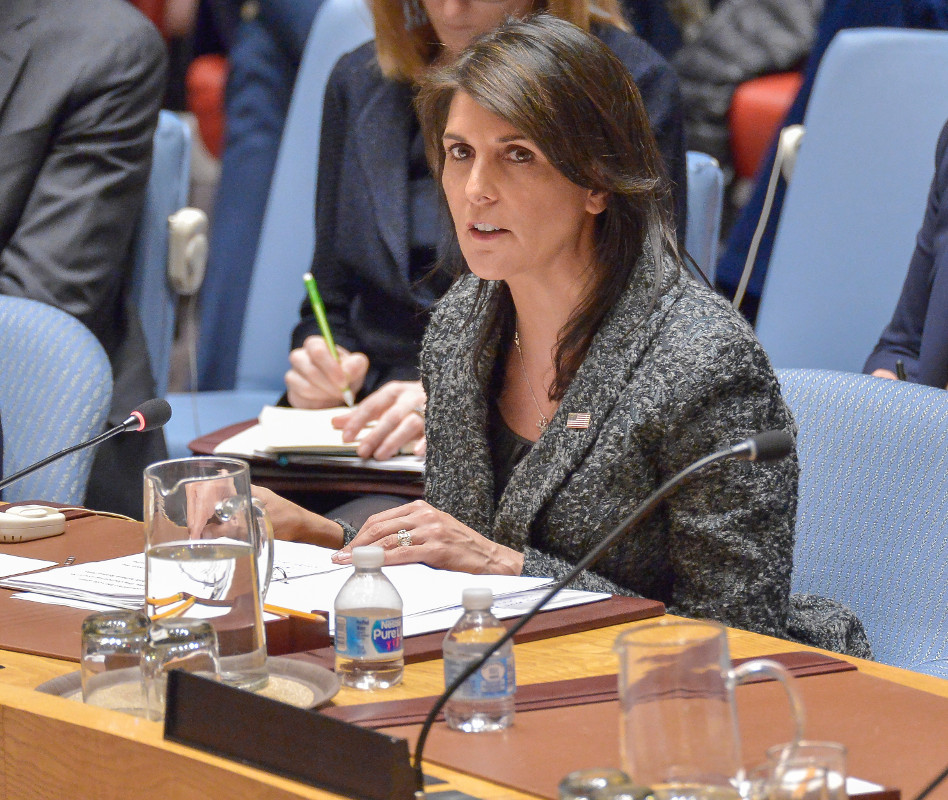
Since February 2018, Assad, backed by its Russian and Iranian allies, has been making a new and brutal push to recapture rebel-held suburbs of the capital Damascus. The fighting in and around Eastern Ghouta has been particularly pronounced and there have been reports of new Syrian government-launched chemical weapon attacks. Ghouta was the target of a major indiscriminate chemical weapons strike in 2013, as well, and there have been sporadic reports of additional incidents in the same area since then.
Internationally-backed pauses in the fighting have allowed aid convoys to reach civilians trapped by the fighting, but attempts to broker broader ceasefires to ease their suffering have largely failed to produce real results. Those deals left open large loopholes that allowed the Syrian government and its benefactors to continue operations against "terrorists," which is how Assad and his partners describe any and all groups opposed to the regime in Damascus.
Under a Russian-brokered deal in 2013, Syria was supposed to have turned over its stockpiles of agents and precursor chemicals to international inspectors. By all indications, Assad has flouted that agreement and continues to produce and employ chemical weapons, despite being a party to the Chemical Weapons Convention.
A punitive U.S. military response would hardly be unheard of, with President Donald Trump ordering just such a strike on Syria’s Shayrat Air Base in April 2017 in response to the infamous chemical weapons attack on the town of Khan Sheikhoun in the Syria’s northwestern Idlib Governorate. The Trump administration has made similar threats since then, with Secretary of Defense James Mattis saying it was “ill advised” for the Syrian government to “go back to violating the chemical convention” in February 2018. However, none of these recent warnings has led to further strikes, at least so far.
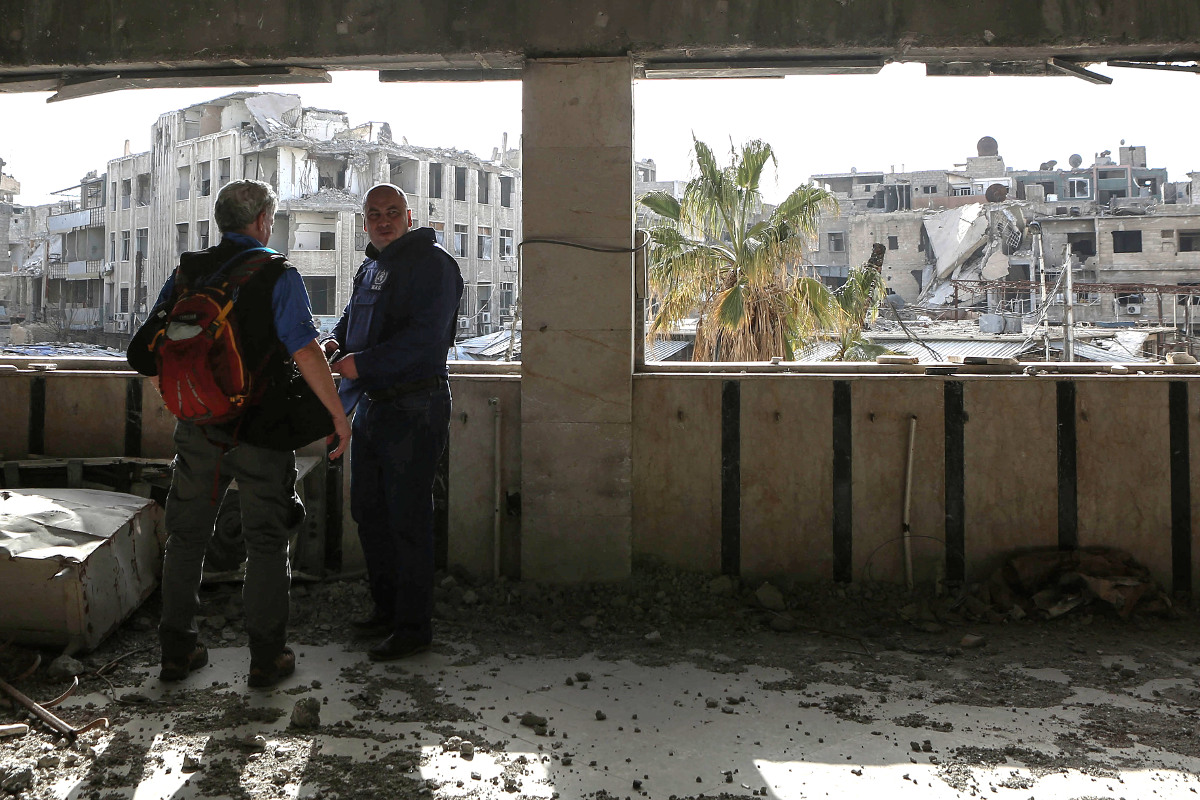
Russian denials
Unsurprisingly, Russia denies any involvement in either the attempt on the Skripals’ lives or in chemical weapon use in Syria, either directly or indirectly. The Kremlin has, following an almost standardized pattern we at The War Zone have already detailed in depth, sought to deflect, misdirect, misinform, and otherwise muddy the waters surrounding both of these issues.
Citing Russia’s rights under the Chemical Weapons Convention, Russian Foreign Minister Sergei Lavrov has demanded access to the samples the U.K. government says show the presence of a Novichok agent. Signatories to the treaty are allowed to review evidence against them if another party believes they have violated the terms of the agreement. Though its hard to imagine Russian authorities would willingly implicate themselves if they did have a chance to examine the chemical residues, Russia’s top diplomat has used this opportunity to imply that it is actually the United Kingdom that is failing to meet its obligations.
“We’ve made a statement to dismiss this as nonsense. We have nothing to do with this,” he said. “Russia is not guilty and it is prepared to cooperate in accordance with the Chemical Weapons Convention, if the United Kingdom takes the trouble of complying with its international legal obligations under the same document.”
Russian state and quasi-state media were also quick to insinuate that “traitors” such as Skripal cultivated all sorts of enemies beyond the Kremlin and therefore it was impossible to link the assassination attempt to Russian authorities. Lavrov, in turn, was quick to put the blame for any misinformation and rumors on the British press and other Western media, without directly challenging any of the publicly known details beyond his blanket denial.
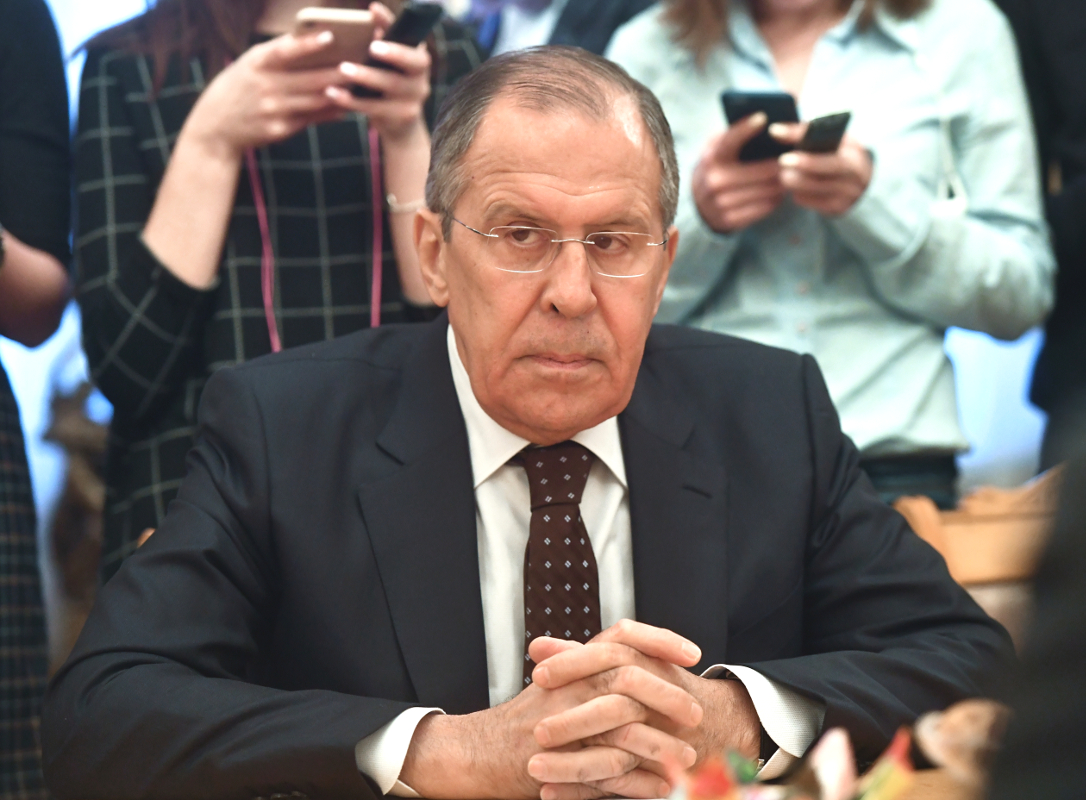
On top of that, Russian Foreign Ministry Spokeswoman Maria Zakharova described May’s statement to Parliament specifically as a “circus show” and implied the U.K. authorities were both actively manipulating a deliberate media furor over the incident and may have poisoned Skripal themselves in order to paint Russia as an aggressor, yet another unsupported conspiracy theory.
With regards to Syria, the Russian government took things a step further, accusing rebels and the civilian volunteer group known as the White Helmets of coordinating with the United States to stage fake chemical attacks in order to provide an excuse for U.S. military action. There is already a long-standing but unfounded conspiracy theory that the White Helmets are actually terrorists who routinely fabricate atrocities to sway public opinion against Assad and his regime.
"According to reports, after the false flag attack, the U.S. plans to accuse the Syrian government troops of using chemical weapons, and to provide the world community with the so-called 'evidence' of the alleged mass death of civilians at the hands of the Syrian government and Russia supporting it,” Chief of the Russian General Staff Valery Gerasimov said, according to state-run outlet Sputnik. “This has been confirmed by the discovery of a laboratory for the production of chemical weapons in the village of Aftris, which was liberated from terrorists,” and the capture of video equipment and satellite transmitters, Gerasimov added.
The Russian general also threatened a response in kind against American forces and their partners in Syria, which the Kremlin and Assad both insist are operating illegally in the country, if the U.S. military did launch another punitive strike. Later on March 13, 2018, Chairman of the U.S. Joint Chiefs of Staff, U.S. Marine Corps General Joseph Dunford, called Gerasimov to discuss "issues of mutual concern," which appeared to be an attempt to de-escalate those particular tensions, though the exact details of the conversation remain private.
Beyond this particular set of comments, Gerasimov is the name most commonly associated with Russia’s new hybrid warfare concepts, which include a heavy emphasis on information warfare. His statements are typical of increasingly textbook claims that seek to deflect attention from Russian transgressions by depicting countries like the United States as the actual threat and responsible for even more serious atrocities.
As already noted, the United States has already acted in response to one Syrian government chemical attack and has repeatedly made threats to do so again since then without following through. Regardless, there is nothing to suggest there is any actual foundation to this new conspiracy theory.
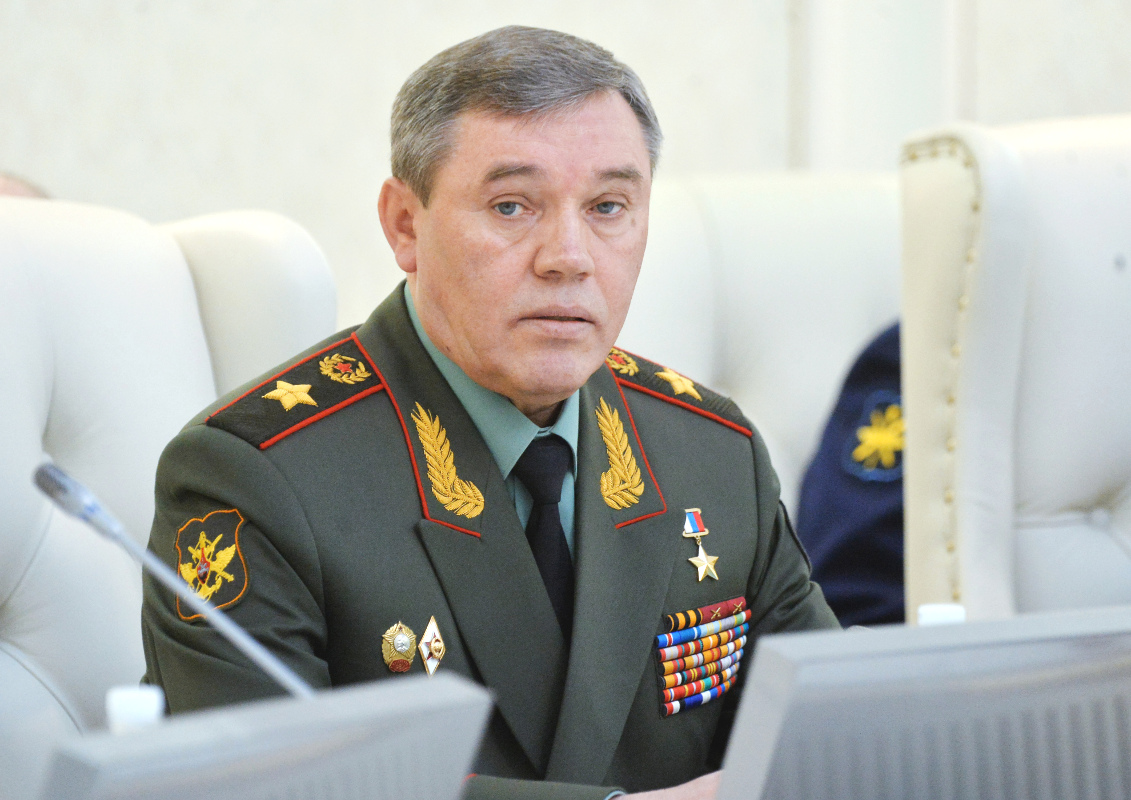
Worrying uncertainty
It’s not entirely clear how these escalating tensions between Russia and the United Kingdom and the United States will play out now, though. It is highly unlikely that the Kremlin would outright admit they attempted to murder Skripal with a chemical agent in violation of an international agreement, even though senior Russian officials have all but made clear that this is the case.
"Those who serve us with poison will eventually swallow it and poison themselves," Putin himself said of Skripal earlier in March 2018. Putin, who is up for re-election as Russia’s president in a matter of days, appears intent on demonstrating his ability to make these wildly provocative moves with impunity and it would follow an already worrying pattern.
In February 2018, Putin reportedly gave at least tacit approval for an offensive by Kremlin-linked mercenaries and Syrian militia into areas that American troops and their Kurdish partners occupied in Syria, which prompted a massive U.S. military counter-attack. Russian authorities have, of course, publicly denied any involvement in that incident despite growing evidence to the contrary.
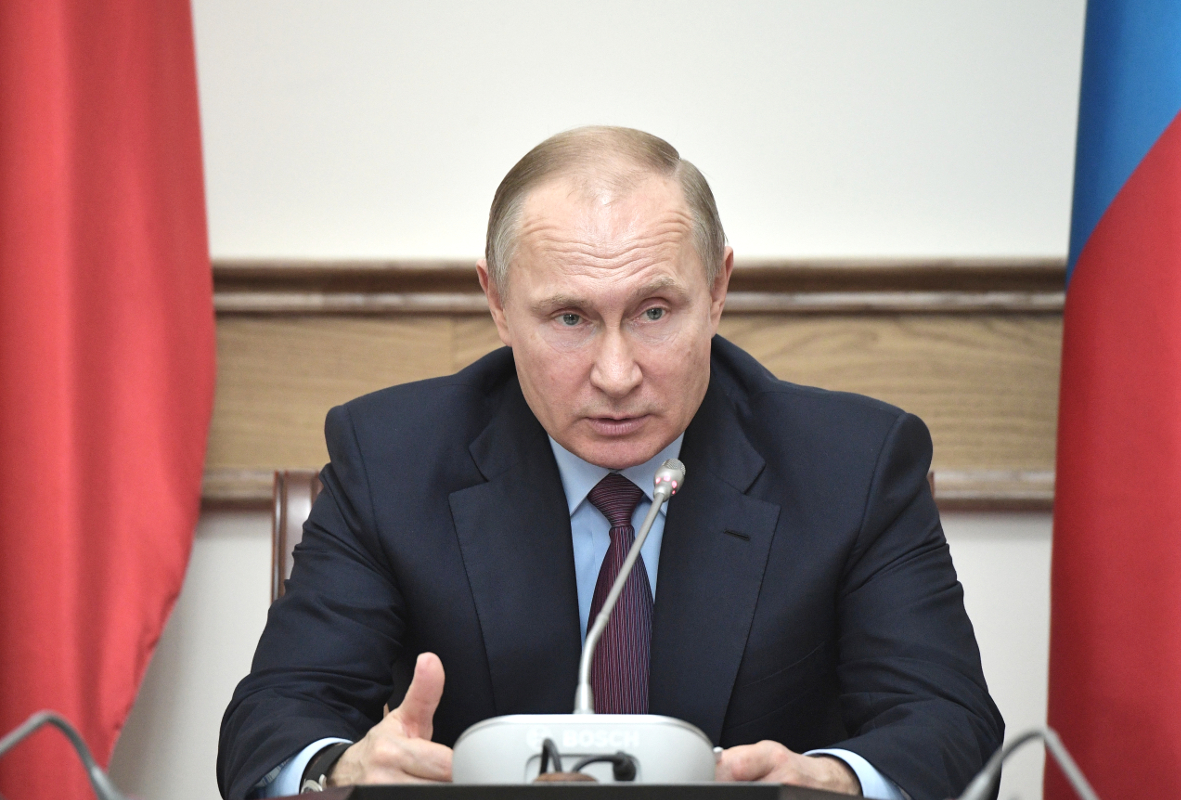
Then, in an interview with NBC’s Megyn Kelly earlier in March 2018, the Russian leader also again brushed off accusations that his government deliberately interfered in the 2016 United States presidential election. In his newest response to those accusations, Putin, who has previously suggested that “patriotic” Russians may have launched cyber attacks and information warfare campaigns to influence the poll on their own accord, disgustingly suggested that Russian Jews or various ethnic minorities could have been responsible, too.
And despite U.K. Prime Minister May’s demand that Russia explain itself over the Skripals or face the repercussions, the U.S. government has so far been unable to present a united front in support of one of its most important allies. On May 12, 2018, top White House spokesperson Sarah Sanders declined to specifically name Russia as the likely culprit in the assassination attempt in response to a reporter’s question, only stating that the U.S. government stood behind its counterparts in the United Kingdom.
Secretary of State Rex Tillerson, however, issued a much more pointed statement, not only naming Russian authorities, but lambasting them over the incident. “There is never a justification for this type of attack – the attempted murder of a private citizen on the soil of a sovereign nation – and we are outraged that Russia appears to have again engaged in such behavior,” he said.
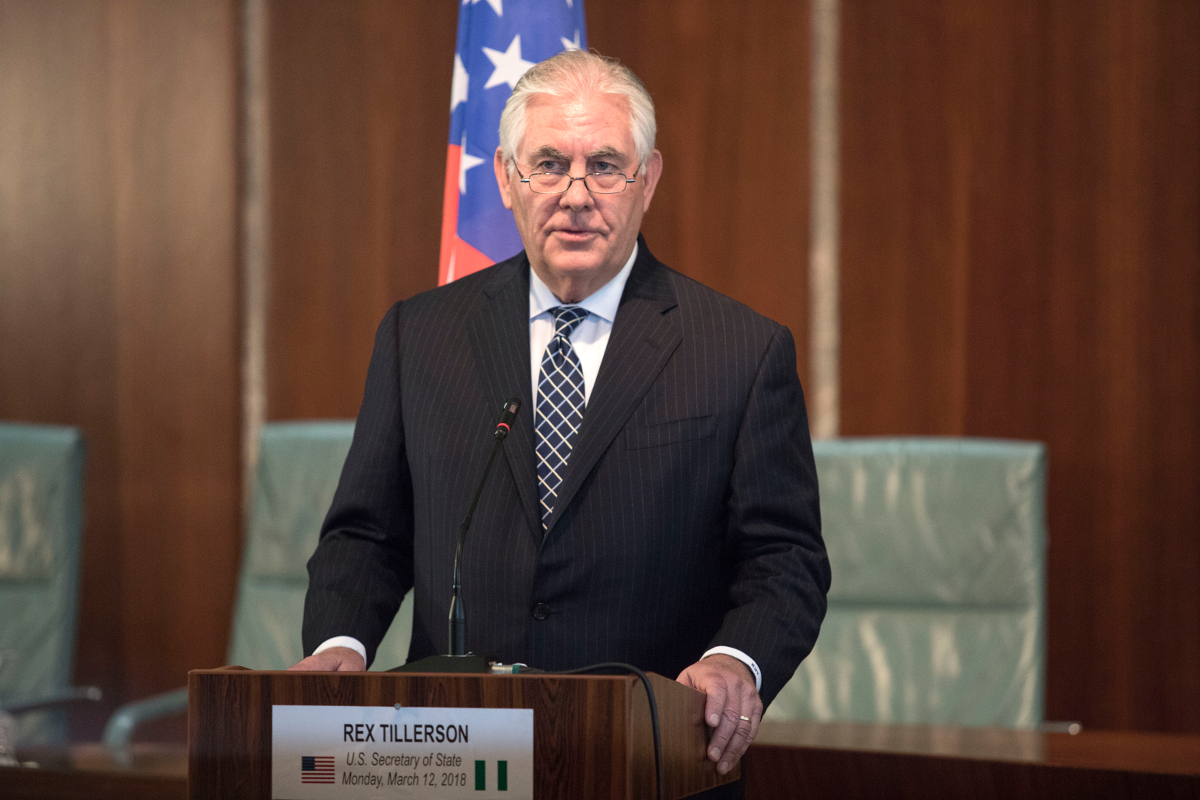
Political upheaval in the United States
Unfortunately, long-standing tensions between Trump and Tillerson came to a head on March 13, 2018, when the president unceremoniously announced he had fired his top diplomat via Twitter. It remains unclear whether or not Tillerson knew his fate beforehand and whether he was fired for his Russia comments or if he made his stern remarks because of his impending departure.
Trump personally sees Russian meddling in the 2016 election and accusations that his campaign may have coordinated at some level with Putin’s agents as questioning the legitimacy of his presidency. As such, he has repeatedly sought to downplay these assessments, despite the mounting evidence.
This, along with the new cabinet shuffle, could easily impact the U.S. government’s response to these growing challenges from the Kremlin. That being said, Trump has said he will seek to have Central Intelligence Agency director Mike Pompeo take over as Secretary of State, which may not necessarily offer a change from Tillerson’s stance toward Russia.
Pompeo, who is known for being a national security hawk who is often in favor of military action, has gone on the record to reiterate the U.S. Intelligence Community’s assessment that the Russian government did attempt to influence the outcome of the 2016 presidential election. He has also publicly warned that the Kremlin is likely planning a similar campaign to try and sway the results of the 2018 mid-term elections.
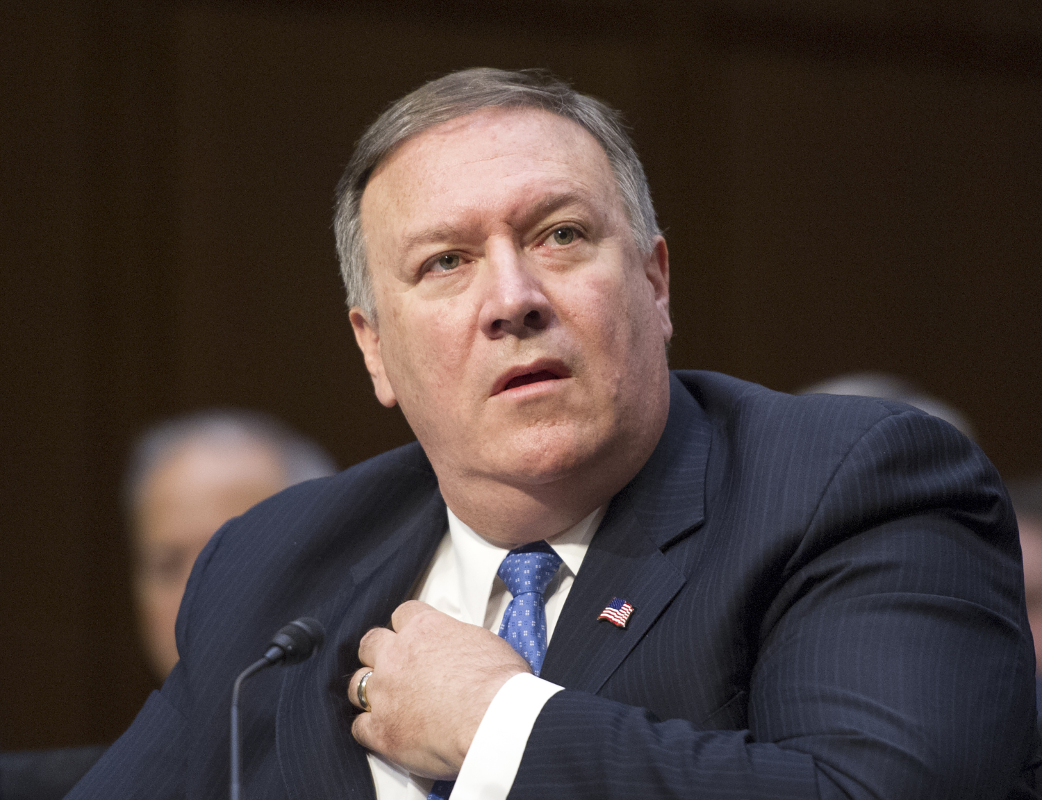
Trump, however, clearly believes that Pompeo is more likely than Tillerson to share his opinions broadly. “We’re getting very close to having the cabinet and other things that I want,” the president told reporters on March 13, 2018. He also said that it "sounds to me like it would be Russia" in regards to the Skripal assassination attempt based on the available evidence and reportedly called Prime Minister May to offer his full support.
Whatever the Trump Administration's actual positions are, firing America’s top diplomat the day before a major treaty ally says it may initiate a serious response to what it asserts was a foreign attack on its soil can only further complicate what will already be a major foreign policy test for the Trump Administration. We can only hope that despite this upheaval, the U.S. government will be able to rise to the challenge and stand by its friends abroad in the face of an increasingly bold and assertive Russia.
Contact the author: [email protected]
